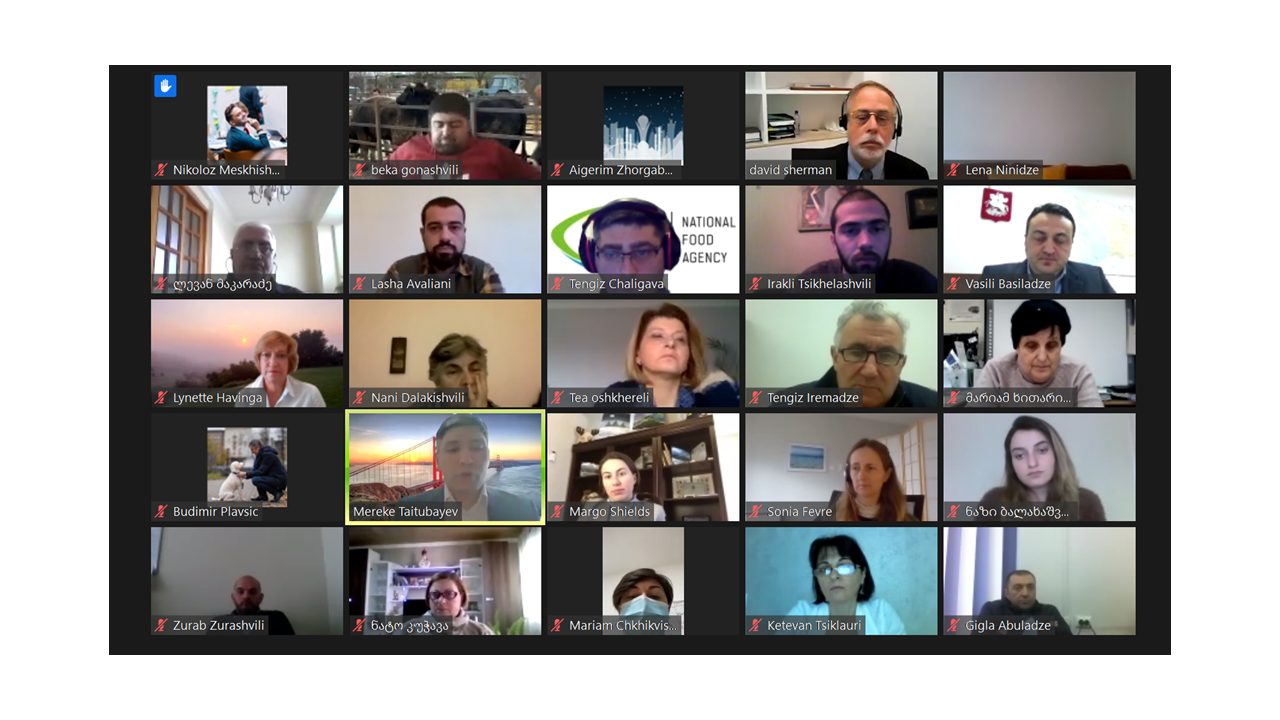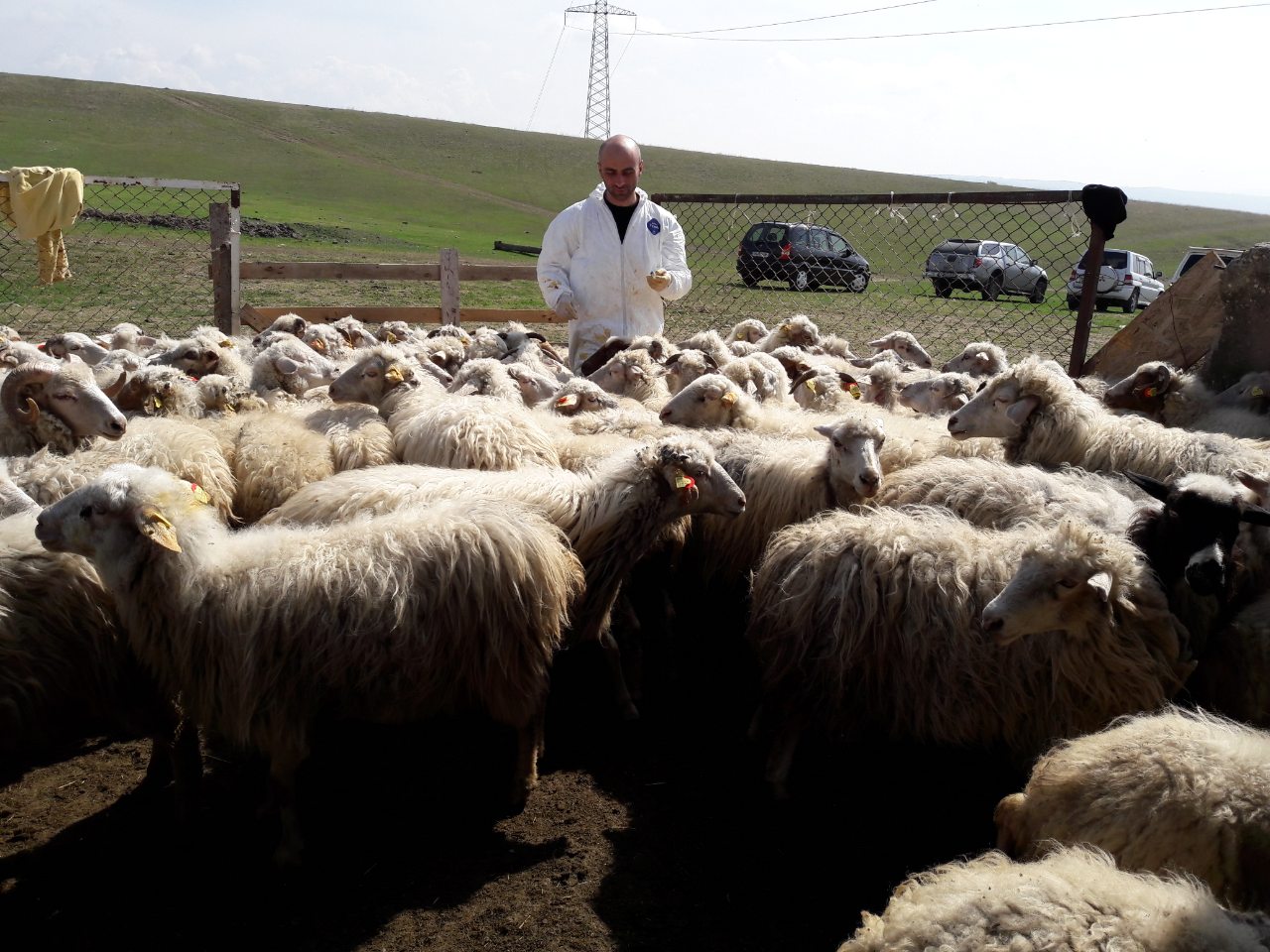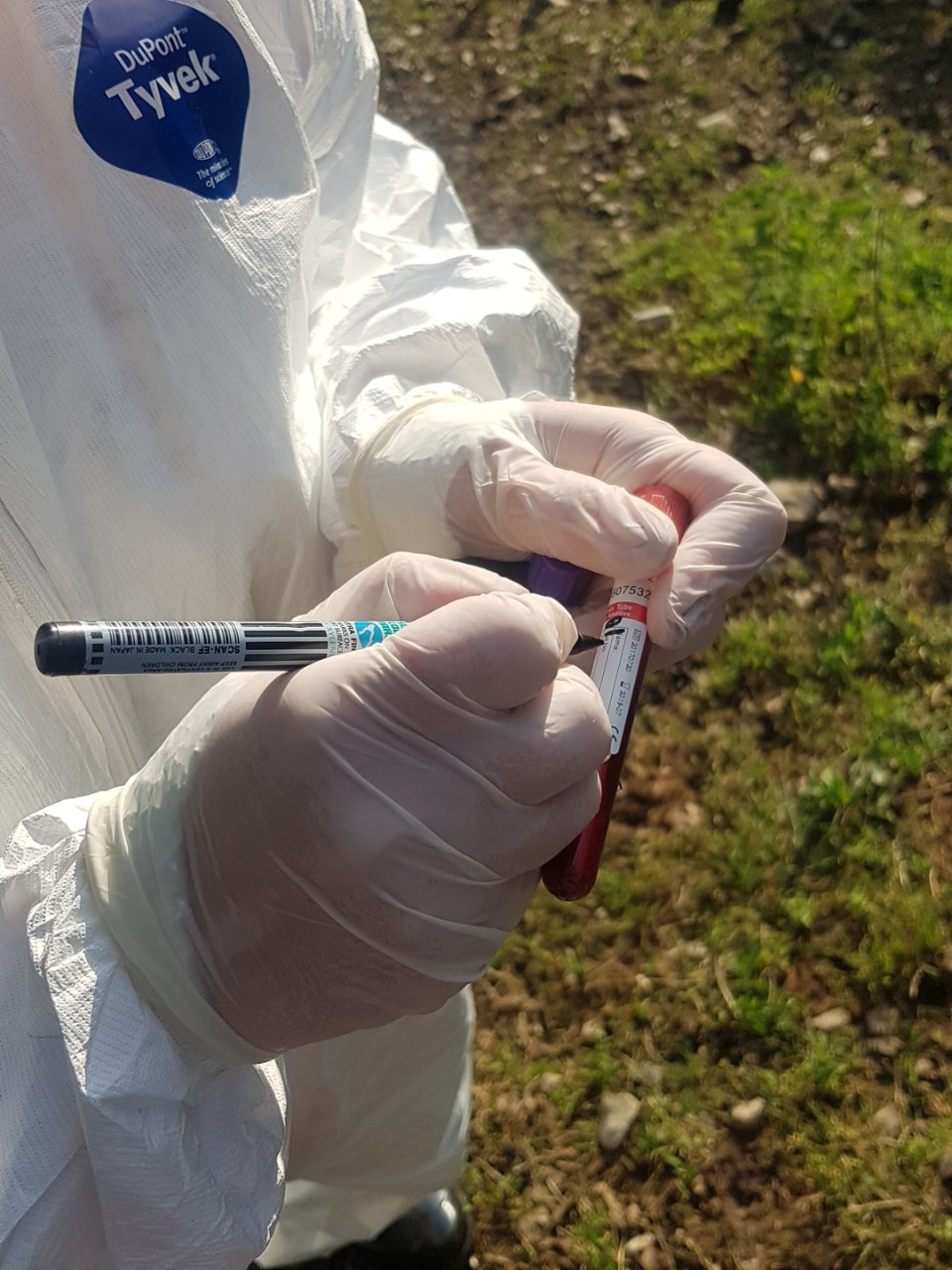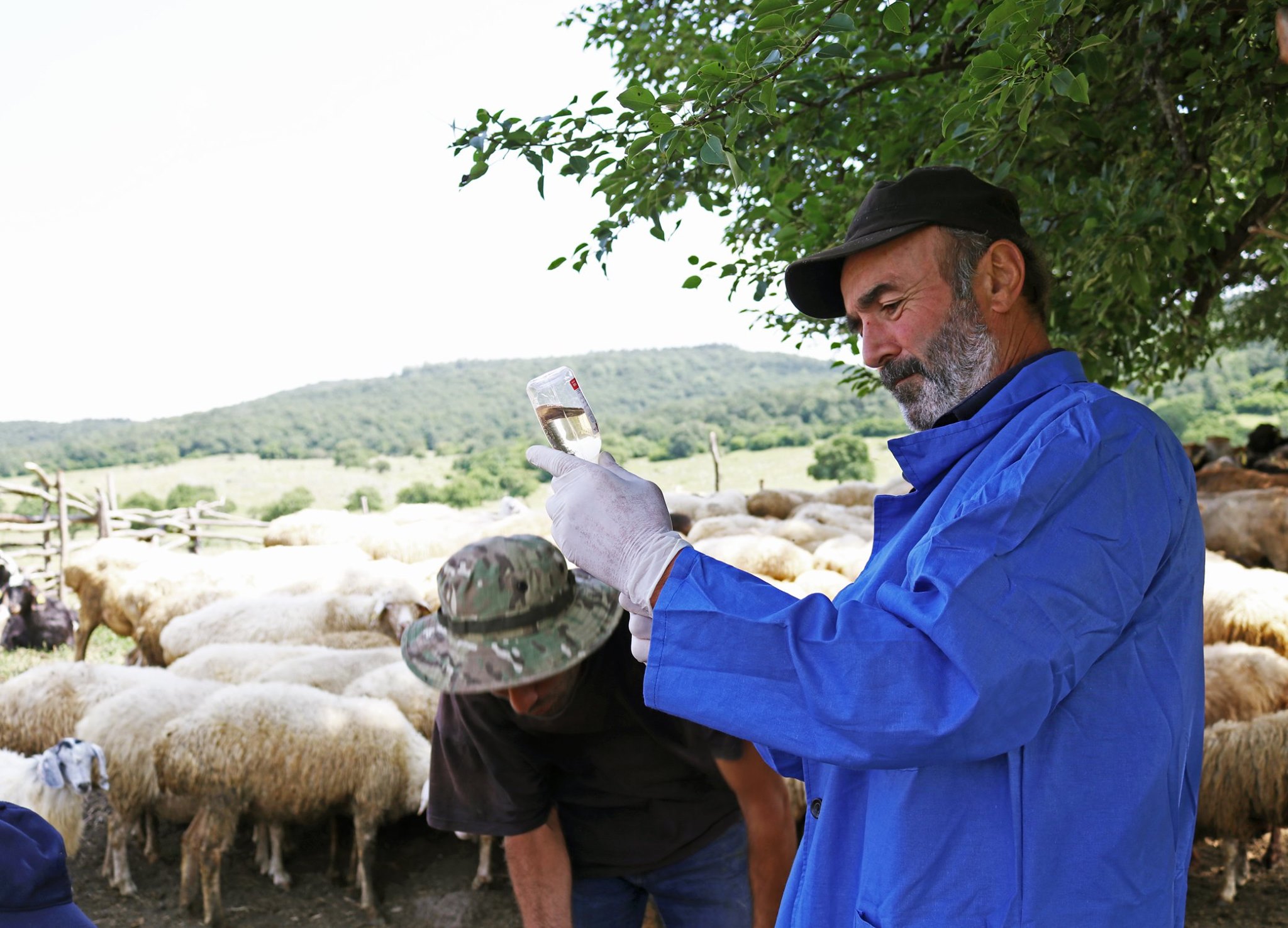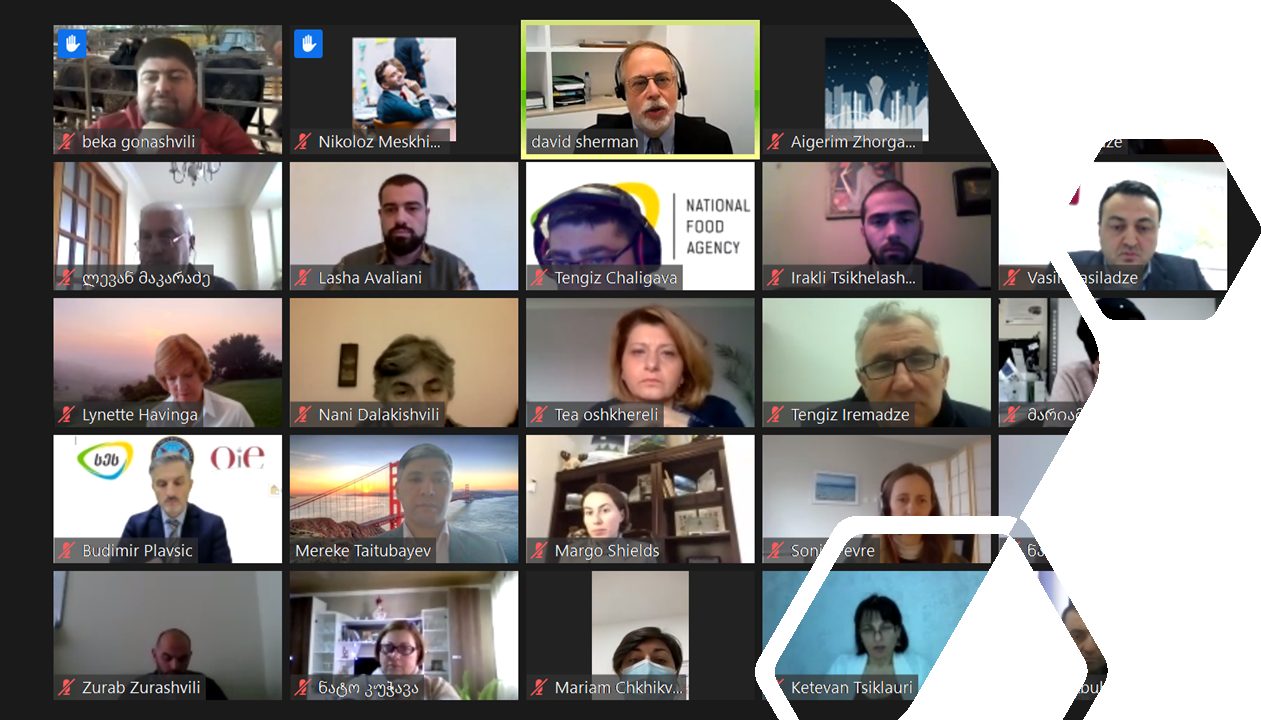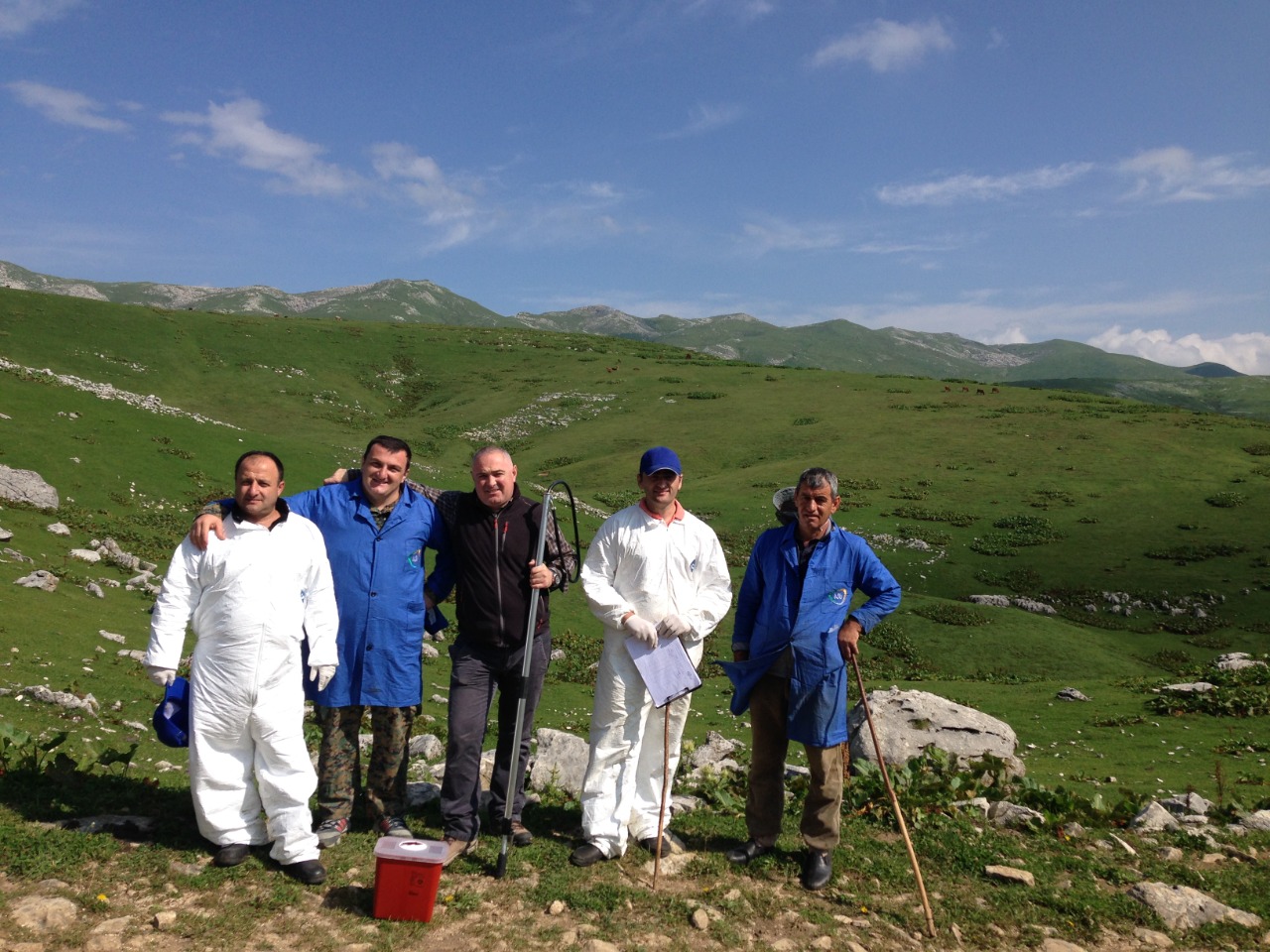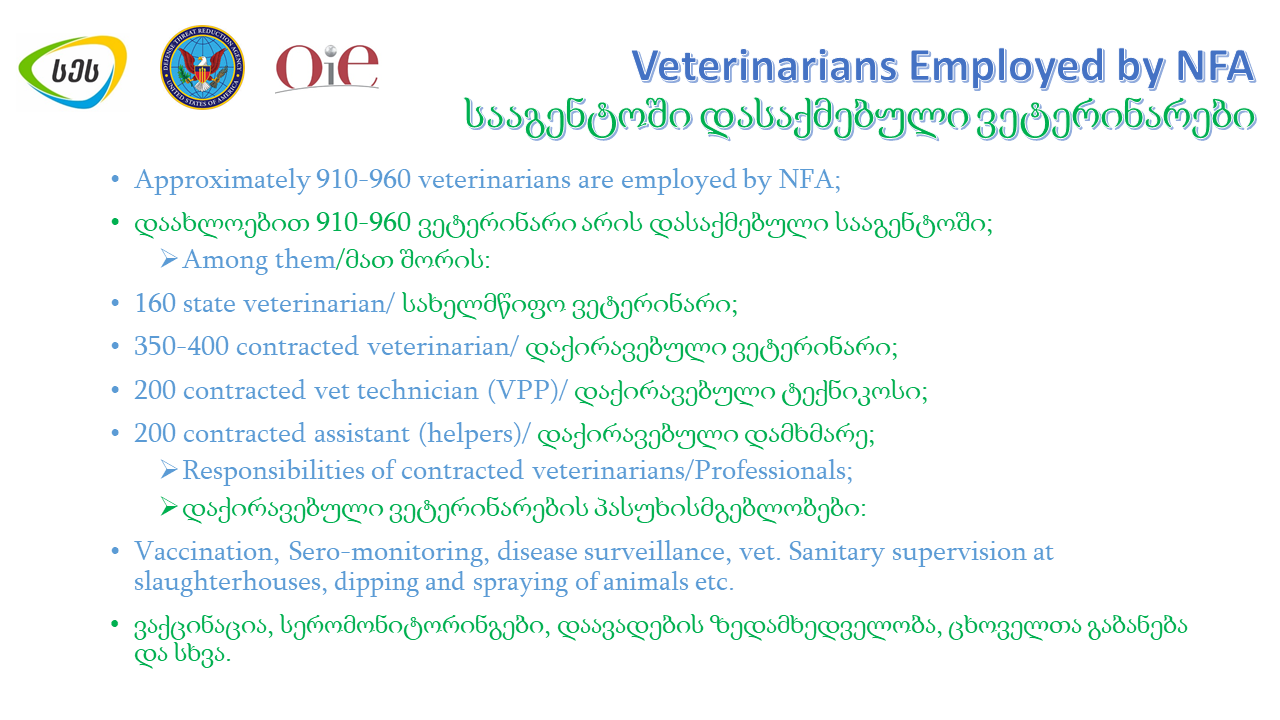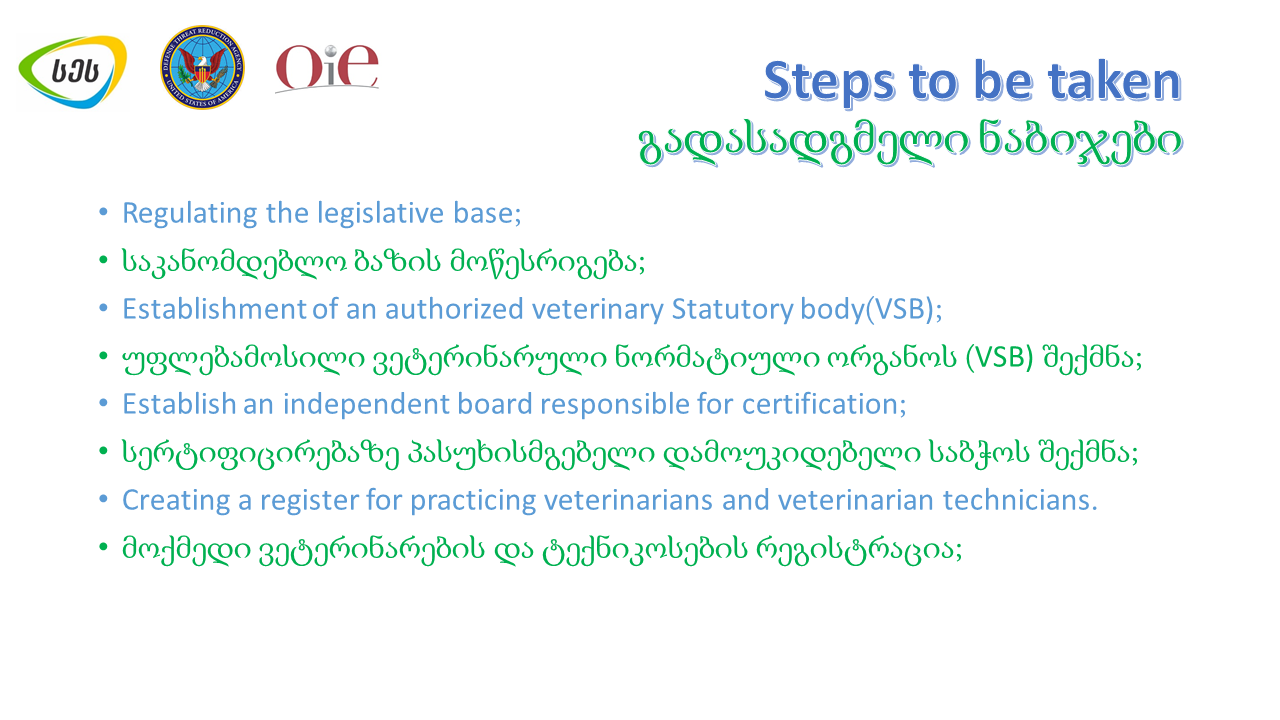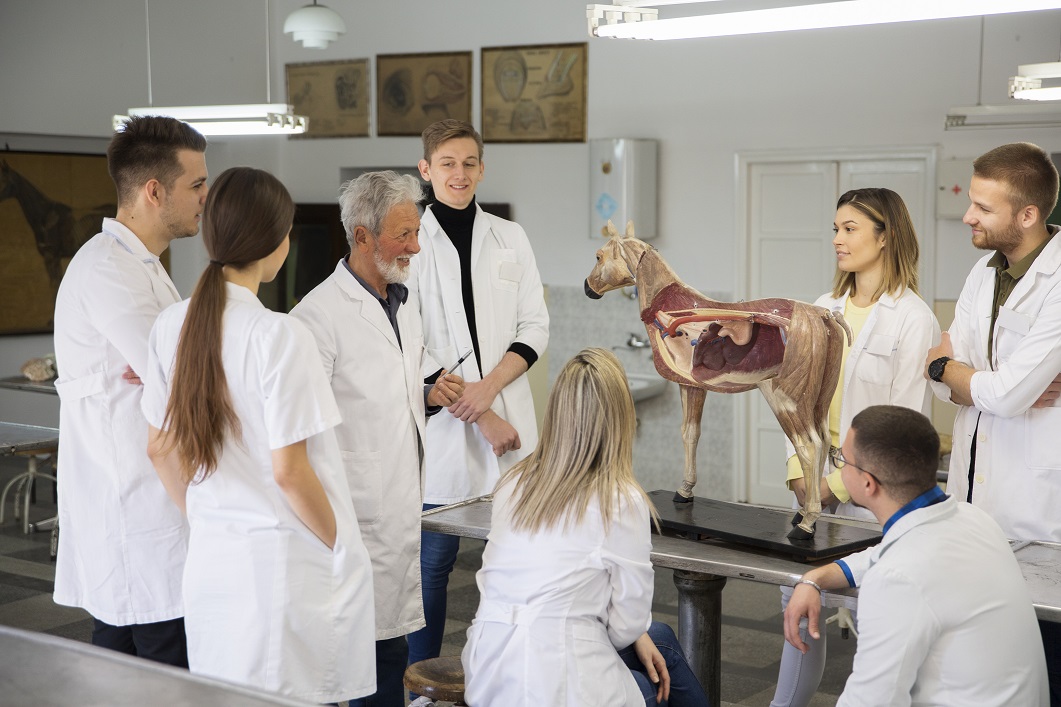
Since 2007, the World Organisation for Animal Health (OIE) has been evaluating the performance of veterinary services (PVS) in its member countries through a platform specially developed for this – OIE PVS Pathway. According to the latest OIE data from May 2020, 142 countries applied, and 137 countries went through this procedure, which has allowed Veterinary Services to evaluate and improve their performance by reform and working on the identified deficiencies. In the OIE PVS Evaluation Tool, 45 critical competencies are assessed on a 5-point scale, and several critical competencies are dedicated to the availability and quality of workforce (CC I-1A, I-1B), competency and education of veterinarinarians (CC I-2A), and veterinary paraprofessionals – VPP (CC I-2B), continuing education (CC I -3) as well as the presence of veterinary statutory bodies (VSB) in the country (CC III-5). An overall analysis of the results of past PVS missions on the above-mentioned competencies revealed a low state of their level or even a complete absence of some structures in the country (e.g., there are no appropriate legislative framework regulating these issues and VSB, different terms for VPP training and curricula, different definition on what VPP is, etc.).
Since 2009, the OIE has organized 4 Global Conferences on Veterinary Education (1st in Paris (France) in 2009, 2nd in Lyon (France) in 2011, 3rd in Foz de Iguazu (Brazil) in 2013, and 4th in Bangkok (Thailand) in 2016), as well as 2 regional meetings on veterinary paraprofessionals (South Africa in 2015 and Bangkok (Thailand) in 2017). In 2008, VPP was defined in the OIE Terrestrial Animal Health Code, and in 2016 an Ad hoc group on VPP was established for the creation of international standards (the OIE Competency Guidelines for Veterinary Paraprofessionals and the OIE Curricula Guidelines for Veterinary Paraprofessionals).
The new project “OIE Strengthening Veterinary Paraprofessional (VPP) Competencies” is planned for 5 years and activities cover the following regions: Eastern Europe and Central Asia, South and South-East Asia, and Southern, Eastern, and Western Africa. The project offers valuable global-level capacity-building to support the launch of new initiatives related to veterinary workforce development.
In 2020, the OIE started the implementation of activities within the framework of this project in a face-to-face format. However, the COVID-19 pandemic meant adjustments have been made to both the schedule and the format of the activities, and most events will be organized online for now. OIE recruited a Regional Project Officer responsible for the facilitation of this project in the Europe region in the OIE Subregional Representation in Nur-Sultan.
Georgia is a country that has already actively expressed a willingness to participate in the project and has all the necessary attributes for this: the OIE PVS Evaluation mission was held in the country in 2009 and a Veterinary Legislation Support Mission (VLSP) mission in 2015. Georgian authorities are actively working on harmonization of national veterinary legislation with the OIE international standards and EU rules. Through two online meetings (on August 12, 2020, and September 11, 2020) The representatives of the OIE and the National Food Agency (NFA) of Georgia discussed the results of a questionnaire on VPP and veterinary education, statistics on veterinary graduates from veterinary medicine faculties and colleges, the number of practicing veterinarians in the country, where they work, what their function is, what problems exist in the legislative framework, and also aspects related to activities that should be carried out by a national Veterinary Statutory Body.
On 15 December 2020, the OIE and NFA held a webinar, with almost 50 participants, where not only technical presentations were given by experts, but also, workshops in small groups, providing very productive work, an interesting discussion of the results. In addition to representatives of the Georgian Veterinary Authority (NFA), Ministry of Education, Ministry of Environment Protection and Agriculture, Academy of Agrarian Sciences, Faculty of Veterinary Medicine, agriculture/veterinary colleges, veterinary associations, farmers’ association, representatives of the pharmaceutical industry, representatives of FAO, contributed to the webinar.
The welcome speeches were given by Dr. Vasili Basiladze, the Chief Veterinary Officer and OIE Delegate of Georgia to the OIE, and Dr. Giorgi Khanishvili from the Ministry of Environment Protection and Agriculture where they expressed gratitude for the constant support and diverse assistance from the OIE.
Representatives from OIE (Dr. Budimir Plavsic, OIE Regional Representative, Dr. Mereke Taitubayev, OIE Sub-Regional Representative for Central Asia, Dr. David Sherman, OIE Capacity Building Department) thanked the Georgian authorities and colleagues for high-level support to the OIE in a long period, and interest in overall cooperation, and particularly for the assistance of CVO and his team for this project, and organization of the webinar.
In his opening speech, Dr. Plavsic thanked the OIE Delegate of Georgia for his support to the OIE and partners, for the commencement of the project in the region of Europe exactly in Georgia, which started with the assessment of the veterinary workforce and for the integration of VPPs when and where that will be appropriate while ensuring that the legal, regulatory and education framework is in place in line with OIE standards. He stressed out that the current crisis with Covid-19 forces all relevant players and the scientific community not only to analyze the causes of the pandemic and to find solutions for mitigation but also to guide all of us for better preparedness for any future disease challenges. He pointed out that for the prevention of any public health risk, it is of crucial importance to establish and strengthen effective health services in every country, including Veterinary Services, which will work in close collaboration and coordination. “All veterinary authorities should be supplied with adequate resources, supported by an efficient chain of command and staffed by capable and trained veterinarians responsible for providing services to all animal species, veterinary paraprofessionals, supporting veterinarians in their animal health protection activities, and other professionals to guarantee the implementation of the One-Health approach”.
Dr. Plavsic underlined OIE’s long-term commitment to the improvement of veterinary education in Member countries, and reminded participants of two very important OIE documents:
(i) OIE Competency Guidelines for Veterinary Paraprofessionals (2018) for three distinct tracks – animal health, veterinary public health, and laboratory diagnosis; and
(ii) OIE Curricula Guidelines for Veterinary Paraprofessionals (2019) designed to deliver the desired knowledge, skills, attitudes, and aptitudes for VPPs in the three tracks above mentioned.
During the discussion, it was emphasized that the younger generation of Georgia is less interested in receiving veterinary and paraveterinary education due to the low level of salaries, but there is hope that the situation will be improved because of planned increasing income and the prestige of the profession due to the reform process. It was stated how important VPPs are for local communities, as frontline workers in the field who do local jobs such as vaccinations, treatment assistance on the field, etc. The Georgian colleagues expressed strong confidence that the project will be useful and successful for a new generation of specialists and because of the emerging trend towards reform, the demand for VPPs will grow.
The NFA representative Dr. Tengiz Chaligava showed the slides with maps of the country, information on the animal populations, the structure of NFA, the number of veterinarians and VPPs, the responsibility of graduates, the number of regional veterinary offices, current problems in the legislation, the absence of VSB, no continuing education for veterinary specialists and VPP, no register of specialists, planned improvement steps in cooperation with the OIE, etc. It was emphasized that the Code of Food/Feed Safety, Veterinary and Plant Health Protection does not regulate VPPs, and the existing associations of veterinarians in the country cannot be considered as VSB according to the OIE requirements. The speaker presented the further actions that Georgia intends to take in this matter.
Dr. Vasili Basiladze, Georgia’s Delegate to the OIE, said that the country at this stage needs an international expert to assess and develop the VSB in the country. Dr. Budimir Plavsic confirmed that experience in Georgia within the project would serve as an example for other countries. The President of the Small Animal Veterinary Association, Ds. Mariam Chkhikvishvili expressed the interest of specialists on small animals to participate in the project. She indicated that all the graduates from the veterinary faculty want to work in the capital Tbilisi, but in the rural areas, there is a lack of veterinary staff. In response, Dr. David Sherman confirmed that all stakeholders will be involved in the project’s activities. A representative of the Georgian Farmers Association expressed interest in student exchange, updating curricula, creating an e-learning platform, and applying new technologies in agriculture.
Dr. David Sherman highlighted the role of the OIE, the Terrestrial and Aquatic Animal Health Codes, the PVS Tool and its critical competencies on the training of veterinarians and VPPs, steps to develop the workforce in the field of veterinary medicine (how many staff exist now and are needed in the future, what knowledge and skills they should possess). Ms. Sonia Fèvre, in her presentation, focused on workforce development in relation to VPPs, creating an enabling environment for the veterinary workforce in the country (working legislation, VPP training, types of work for VPPs, collaboration with veterinarians), ways to integrate VPPs into the veterinary workforce and planned further steps for cooperation with Georgia within the project.
As part of the Agenda, national participants were divided into small groups where they could have an exchange of ideas within the topic of the project and then present a summary based on discussions, where they all expressed their interest and positive attitude to the webinar and the planned future work.
At the end of the webinar, the representatives from NFA thanked the OIE for the interesting presentations and planned upcoming events within the project. In turn, the OIE expressed gratitude to the Georgian colleagues for their high interest in the project, active participation in discussions, organizing numerous participants representing different regions of the country, and areas of activity. After the webinar, the participants were asked to fill in a questionnaire giving their opinion and comments about the event, information will later be included in the workshop report.
